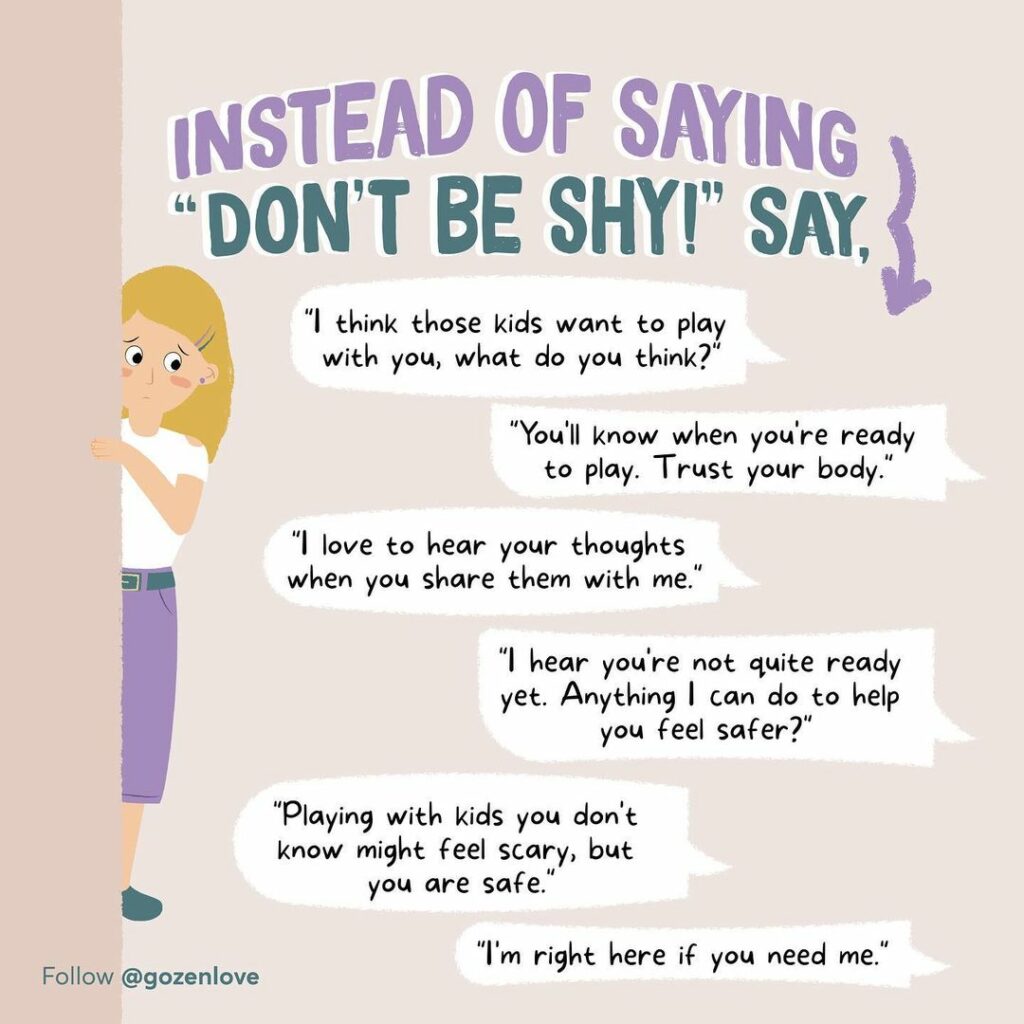As parents, we’ve all been there: watching our little one teeter around the edge of the playground or party, unsure of whether they’re going to take the leap to join the other kids. “Oh no!” we think. “They’re so nervous! Why aren’t they more confident?” Then comes the temptation: “It’s okay,” we want to say. “Don’t be shy!”
While it might seem helpful to tell them not to be shy, doing so doesn’t help kids’ emotional development. First, shyness isn’t a personality trait—it’s a feeling, and all feelings are okay. Second, it’s key that we provide a safe atmosphere for little ones to feel those feelings; that’s how they learn coping skills.
Here, we’ll take a look at six phrases you can use to encourage your child when they’re feeling shy—without telling them that their feeling is wrong or unimportant.

1. “I think those kids want to play with you, what do you think?”
Opening the dialogue with your child by stating what you see happening can make it easier for them to open up to you. Be prepared to feel surprised at your child’s response—they might tell you that they’re feeling scared because a child was mean to them the last time they were at the playground, or that they want to play with a different group of kids. Try to just listen while they describe what’s going on.
2. “You’ll know when you’re ready to play. Trust your body.”
Encouraging your child to listen to their internal cues on whether they feel ready to participate is a smart move now, and later in life. When you teach your child to trust their body, you teach them to listen to their instincts.
3. “I love to hear your thoughts when you share them with me.”
Simply letting your child know that you’re there to listen to what’s happening inside their mind can provide the support that they need to move forward. Even if your child chooses not to share their thoughts, they still know that you’re there to provide support if necessary. After you encourage your child to open up, give them plenty of time to think—you might be surprised when they openly share their thoughts with you a few minutes after you open the door.
4. “I hear you’re not quite ready yet. Anything I can do to help you feel safer?”
Your child might have a simple solution that could help them feel ready to play (like introducing them to another kid or getting their favorite ball out of the car to share with the group). When your child hears that their safety is a top concern, they know that you have their best interests in mind—and that it’s ok to venture out into the unknown.
5. “Playing with kids you don’t know might feel scary, but you are safe.”
Sometimes, kids create internal worst-case scenarios (just like adults). A quick reminder from someone they trust that they’re in a safe place can be all that some kids need to move forward with play.
6. “I’m right here if you need me.”
Your child knows that you love them, but they may need a reminder that you’re not going anywhere as they try a new experience. This can be especially helpful in a new environment, such as a new playgroup or playground. If your child decides to venture out and play after you make this statement, be sure to keep your eyes on them (and off of your phone) as they play—seeing that you’re watching them can help them know that they’ll be supported if they need you.
The bottom line is this: when our kids are nervous and anxious, they tend to distance themselves, especially in social situations. But your child knows that you love them, and giving them a little reminder of your ongoing support and care for their feelings can go a long way in helping them feel comfortable, and maybe a little less shy.
Have a kid or teen experiencing shyness, nervousness, or social anxiety? Teach them skills of resilience and stress management with a family subscription to GoZen! Anxiety Relief Programs.